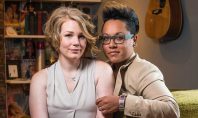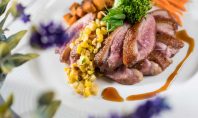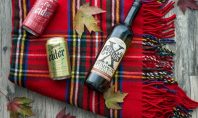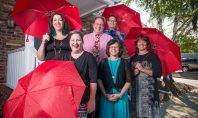The Grind: Local Coffee Roasters
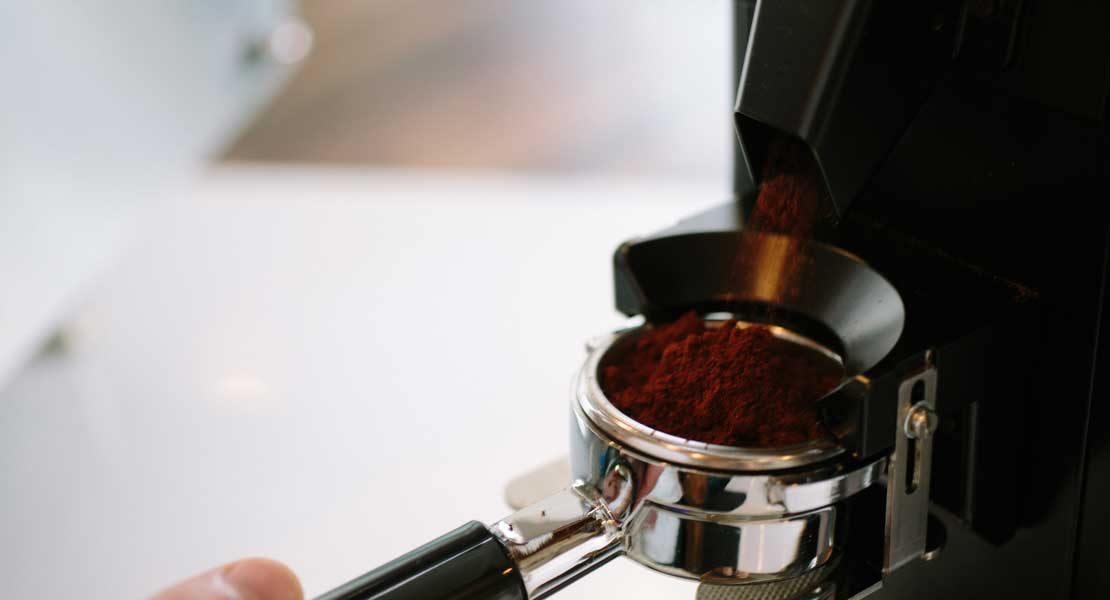
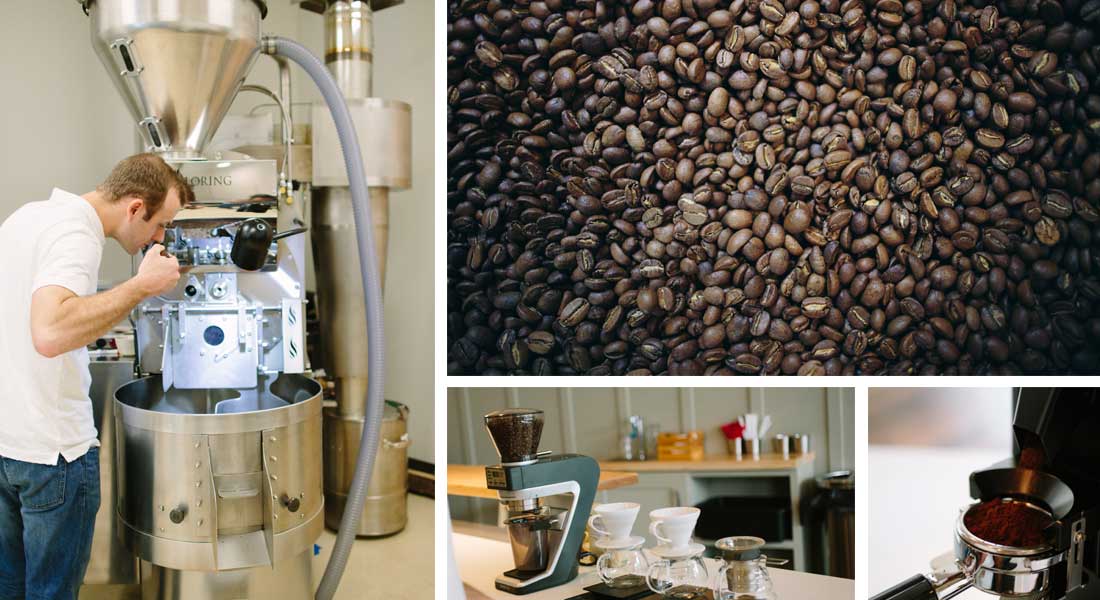 Just as craft beer is having its own (long, wonderful) moment, specialty coffee has officially moved into the spotlight as well. Much like craft beer, coffee can be as simple or as complex as the producer would like to make it. There are light roasts, dark roasts, single-origins, and blends—all from beans found around the world—and so many ways to serve and enjoy it.
Just as craft beer is having its own (long, wonderful) moment, specialty coffee has officially moved into the spotlight as well. Much like craft beer, coffee can be as simple or as complex as the producer would like to make it. There are light roasts, dark roasts, single-origins, and blends—all from beans found around the world—and so many ways to serve and enjoy it.
Gone are the days when coffee was simply thought of as an everyday necessity: it’s finally time that we start paying mind to all of the beautiful complexities of the drink, and there’s no better way to do that than by sipping creations made by roasters right here at home.
Backyard Beans
408 W Main St, Lansdale
610.442.0899
backyardbeans.com
Every business has to start somewhere, and for Matt and Laura Adams, it was in their backyard, roasting coffee beans in a perforated drum roll over a propane grill. Now, the couple has a full-service shop where they pour their own brews, local beer and liquor, plus some treats as well.
Matt Adams says their beans fall into three “buckets”—production/wholesale, single-origin, and shop-exclusive. Production/wholesale roasts are the most approachable, whereas shop-exclusives tend to be more complex and sometimes more acidic in flavor. They set it up this way on purpose—Adams would rather serve the funkier brews in-house so customers can be educated on the roasts and flavors, something that can’t be done at the supermarket.
The couple has been working on cold brews since 2014, and you can get their “Punch in the Face” nitro (infused with nitrogen gas, making for a creamy, smoother taste) cold brew coffee by can, or right in the shop.
On Fridays, you can stop at Backyard Beans for their weekly “cuppings,” essentially a get-together for local connoisseurs to join the duo for product sampling and quality control of their products with some education along the way. Expect to taste 8-10 different shots of coffee and talk about the flavors and aromas you find.
Backyard Beans has some local friends in the food business, too—they share a space with Lansdale’s own Round Guys Brewing, and after 2 p.m. you can get a pour of Round Guys in shop, along with wine from Stone and Key Cellars and liquor from Boardroom Spirits just down the road.
Monocacy Coffee
at Lit Roastery and Bakeshop
26 E 3rd St, Bethlehem
484.893.0483
monocacycoffee.com
To Matt Hengeveld of Monocacy Coffee, a good coffee is like “getting a decent cut of steak—you don’t want it well done.” This why you’re more likely to find light and medium roasts from him and business partner Dan Taylor than darker brews.
In Matt’s opinion, light roasts tend to be more flavorful. Due to the lower temperature used to roast, the unique characteristics of the beans remain the strongest, and the “nuances” are brought out in them.
“Each roaster has their own unique approach,” says Matt, and although Monocacy specializes in lighter roasts, a coffee is considered “good” when “you can tell if there was care put into it.” While there is certainly care put into the making of the coffee, Matt and Dan are sure to “pay mind to every hand that touched the coffee” by also being sure to educate customers all about the source and the making of the coffee, plus explaining the flavors to look out for while tasting it.
Monocacy is sure to give back, too—the beans from their Sumatra Ketiara Co-Op coffee come from a co-op in Indonesia and is collaboratively sourced with the Bethlehem Food Co-op. 10% of the dry sales go directly to Bethlehem Food Co-op, and just about 700 pounds have been sold so far.
Where can you get your hands on Monocacy’s coffee? You could either look out for bags of their products at local farmers markets, or better yet, stop by Lit Roastery and Bakeshop in Bethlehem, owned and operated by Matt Dan, and talented baker Melanie Lino.
Diana’s Cafe
4907 PA-309, Center Valley
610.797.2525
dianascafe.com
Diana Hall-Yurasits is no stranger to the food industry. Her restaurant in Center Valley, Diana’s Cafe, has been around and thriving for about twenty years, and now she and her husband are trying something new together: roasting coffee.
Like many parents who send their kids off to college, the Yurasits decided to do some traveling. They found themselves visiting many small coffee shops and roasteries along the way, where their eyes were opened to the complexities and art behind coffee and the making of it.
There was just one aspect of their visits that frustrated Diana and Jim—they couldn’t see the roasting in action. After making the decision to start home roasting, they also agreed that when they did have their own roasting room in shop, the machine would be visible to curious customers.
Now they have just that—a special room right in the cafe where they are roasting “meticulously sourced” beans, most of which are single-origin. They then serve the coffee right in the cafe, a method they’d like to call “roast-to-table.” With an already solid group of enthusiastic, loyal customers, Diana and Jim are getting plenty of feedback on their coffees, and are open to suggestions on the naming of them.
Pretty soon, patrons will be able to attend a “Lunch and Learn,” where Diana and Jim will explain where their beans come from, how they are roasted, and other interesting tidbits, followed by lunch in the cafe.
As long as Diana and Jim continue to receive positive feedback, they hope to sell their coffee commercially and wholesale. Either way, Jim says, “We are having fun together.” That makes the venture all the better.
One Village Coffee
18 Cassel Rd #1, Souderton
215.721.4818
onevillagecoffee.com
“It takes a village.”
That’s just one mindset that the team at One Village Coffee has taken to heart since before the business was even born, and where their name came from.
While visiting Honduras and Nigeria, president of One Village Andrea Hackman, along with her family, met many coffee farmers along the way. Andrea said that they noticed that “everywhere they went, there was a commonality in people” that inspired the family.
A shared passion for coffee and the desire to to bring people together led to a makeshift roastery in Andrea’s in-laws’ basement, where they roasted “around the clock,” until eventually moving to a garage, and then to their current facility in Souderton. Ten years later, OVC is going strong, selling roasts in twenty-two states, and can be found in many cafes in the area.
Much like craft beer, coffee can be as simple or as complex as the producer would like to make it.
One Village Coffee differentiates their brews into three different “tastes:” classic, modern, and single-origin. Classic roasts like the “Artist” are reminiscent with what you would find in “grandma’s kitchen”—dark and hearty. Modern blends like the “Villager” are “balanced and flexible,” and then the single-origins are lighter roasts that “bring out the nuances” of the beans, making them more distinct in flavor (these are recommended to be tried black, as that makes it easier to takes the differences).
The qualify of coffee is graded on a scale of one to 100, and if the coffee grades above an 80 it is considered “specialty.” One Village uses only 80 and up, with many of them in the 85 range. All of the beans are sourced from regions of the “coffee belt,” including countries in Asia Pacific, Latin America, and Africa.
Aside from roasting quality beans, One Village strives to be as environmentally conscious as possible—for example, their roaster uses 80% less energy than average, they use recyclable packaging, and the bean bags are compostable. One Village was also one of the first companies to be certified as a B Corporation, meaning that they meet “rigorous standards of social and environmental performance, accountability, and transparency”—something they are quite proud of.

